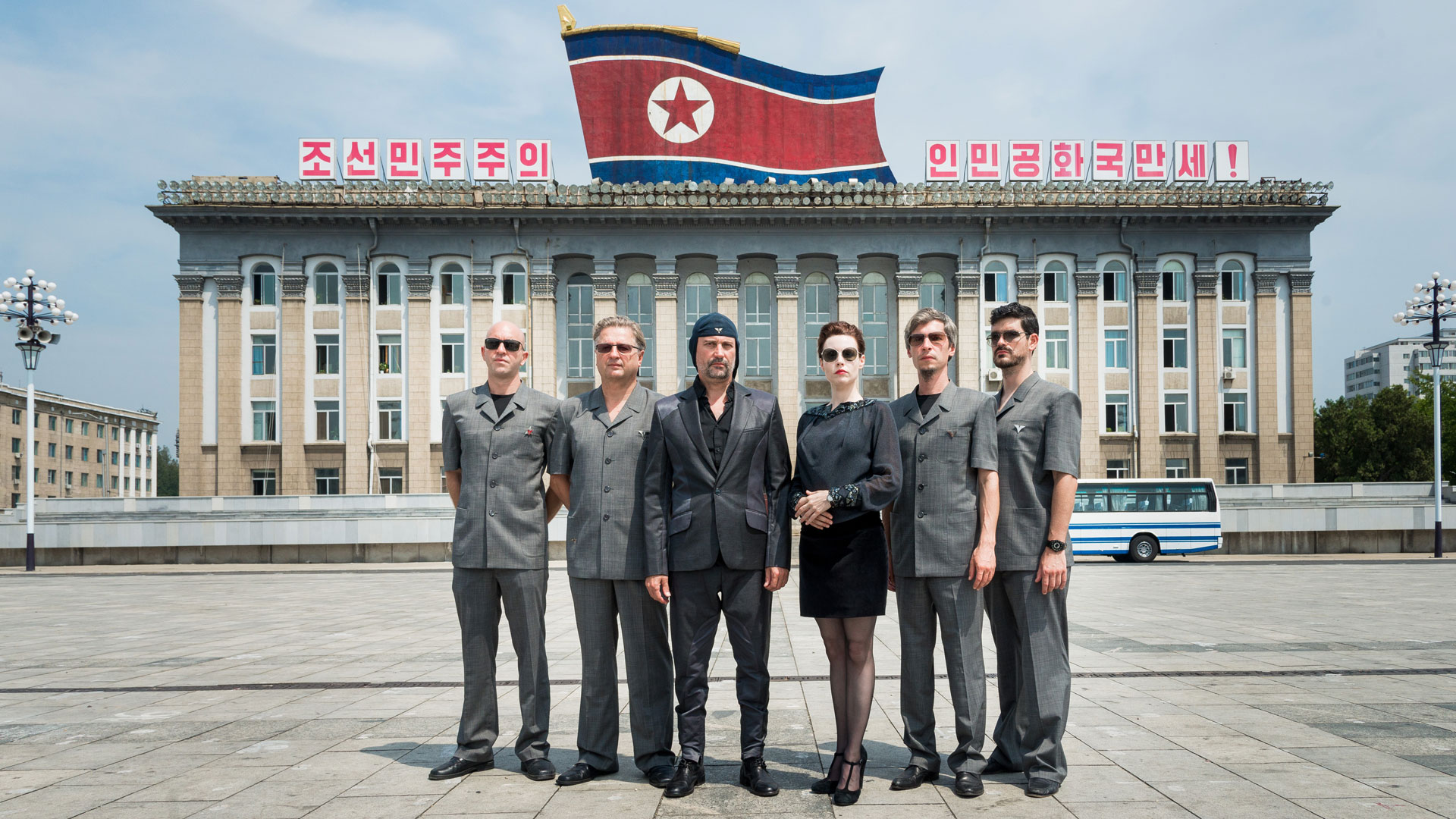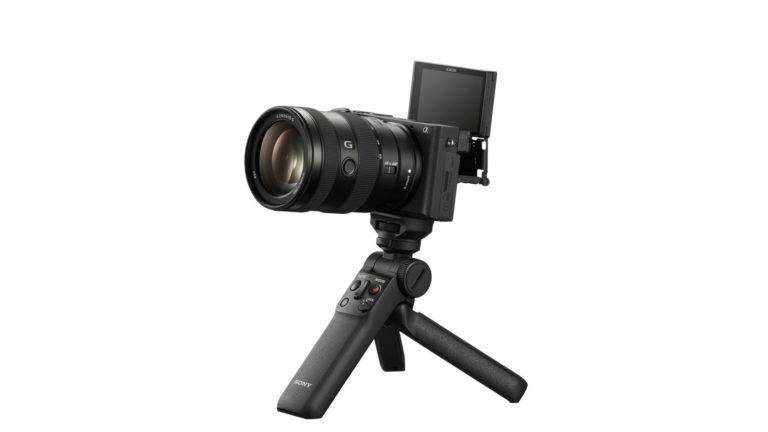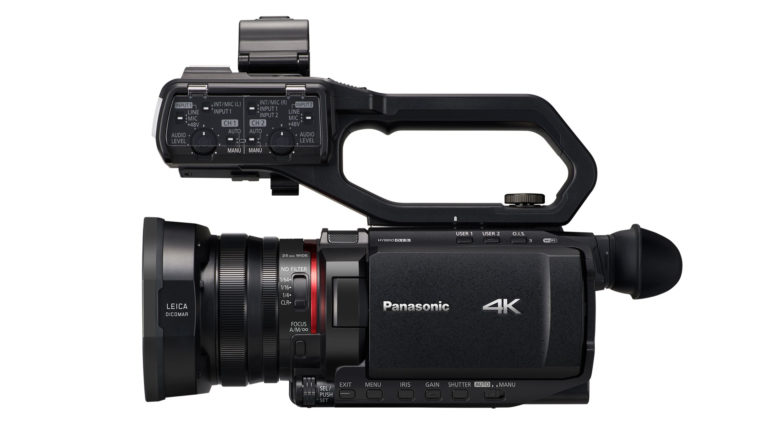Why the Filmmaker, a Self-Described 'Theatrical Activist,' Hit the Road with a Strange Band in a Strange Land
Liberation Day is a high-concept movie if there ever was one: it documents the first-ever tour of North Korea by a rock band. In fact, Norwegian co-director Morten Traavik, who talked with StudioDaily, organized the tour himself as part of an ongoing series of arts projects connecting the West and North Korea. (He made the film with Ugis Olte and appears on-screen for 80 percent of it.) He chose the controversial Slovenian band Laibach, whose 2014 video “The Whistleblowers” he had previously directed.
It’s worth giving some context: the band formed in 1980 when Yugoslavia was still one country living under communism (two members remain from that lineup), and it plays with militaristic and fascist imagery, often covering European rock songs in a way that makes them sound like Nazi marching tunes, in a politically ambiguous way. For their show in Pyongyang, they played songs from The Sound of Music among the rest of their set. But Liberation Day explores the paradoxes of Westerners traveling and working in North Korea; it’s not yet another exposé of the horrors of the dictatorial state, although there is a disturbing sequence when one Laibach member seems to go missing and Traavik and the rest of the band fear the worst. Traavik is actually quite familiar with the country — and he is willing to make himself the main subject of his own documentary instead of presenting the Laibach concert film many people might expect. It offers an unusual take on North Korea that dodges the clichéd Western tropes about the country.
[Following its theatrical release, Liberation Day will be available for viewing via Sundance Now in early 2018. -Ed.]
StudioDaily: How did you and your co-director Ugis Olte divide up the work of directing Liberation Day?
Morten Traavik: Well, it was a very pragmatic decision in the sense that I am very much a part of all the action. I was so tied up in all the negotiations and on-the-ground actions during the week in which the documentary was shot. We needed a steady pair of hands, a professional who could film it. That was my second director, Ugis. I really had very little to do with the directing on the spot. We really started working as a team when we surveyed all the footage in the editing room.
I believe you directed Laibach’s video “The Whistleblowers” from their penultimate album in 2014. Was that your first direct meeting with the group?
Yes, that was our first collaboration. In conversations leading up to the direction of that video, that was the first time we met in the flesh.
You have an ongoing interest in art projects regarding North Korea. How did that develop?
Well, again, it’s quite a long story. I visited the country as a kind of tagalong to international friendship associations back in 2008. They are mostly middle-aged white men who like to travel to North Korea and express their solidarity. Through a common acquaintance, I got a spot on a trip like that. My curiosity was stirred, not only because North Korea is a very unusual place. A lot of my prejudices were confirmed, but also challenged. Many things were different from the things that we get from Western media narratives about the place. Being an artist in the field of, you could say, social interventions or theatrical activism, it was a place which was almost irresistible to me to develop projects. I understand that a lot of time would be needed.
Were Laibach the only rock band you wanted to arrange a tour of North Korea?
Not before Laibach. That was my ultimate choice, under any circumstances. After Laibach, I’ve been contacted by numerous other outfits, but they contacted me.
Which other groups?
For one, Marky Ramone. Then, Behemoth, which is a quite famous black metal band. They are very big within the black metal scene in Europe. I had to tell them they were a little bit left-field in North Korea.
I know their album The Satanist.
It’s a classic.
Do you think people in North Korea would be offended by music that uses anti-Christian and occult imagery the same way some people in the West would be? Or would it completely fly over their heads?
I don’t really think they’d know what to make of the Satanism. The music itself would be a problem. It would be far too dark and ugly. It’s not “healthy, motivational” music. That’s the standard the North Korean regime applies.

Laibach member Mina Špiler
Image courtesy Sundance Now
Do you see a connection between the way Laibach have often been misunderstood and how different North Korea seemed when you actually traveled there?
Yes. I see some points of contact. In fact, I used this argument with North Koreans to try and convince the cultural officials when they were having a lot of cold feet about the possibility of inviting Laibach, precisely because of the accusations of fascism that have been leveled against Laibach in the past. “Look, North Korea has quite often been portrayed in the Western media as a fascist state, the worst since Hitler. You guys aren’t fascists, are you? Look at Laibach!” That quite basic argument worked. Not as the one decisive argument, but they understood. It was really hard for them to counter, since the people I worked with knew about the terrible image North Korea has internationally and are really frustrated by it.
I actually remember hearing Laibach’s cover version of “Life Is Life” on the radio and, according to Wikipedia, it got some MTV airplay. They seem far more obscure these days in the U.S. I found the clip you showed of the early ’80s performance where they showed a film depicting [first Yugoslavian President Josip Broz] Tito and superimposed pornography on top of it very interesting. Did you ever feel like maybe you should’ve gone more into the history of the group?
For the sake of the narrative, we felt like we had to make a choice between telling the story about Laibach and one about two worlds meeting. We chose to go with the latter narrative arc. In many ways, I was prepared before the movie opened for negativity from hardcore Laibach fans. This is not really a film about Laibach. But luckily, most people seem to be fine with that. Even Laibach fans can accept that here, they are definitely prominently on the road but North Korea is more an example of a strange place and Laibach is an example of a strange band, if you follow.
There are also two cinematographers who worked on the film. I was curious how they split up their duties.
We were two documentary teams following that particular week and concert. That timeline we are showing in the film is pretty accurate. We did not move things around to make the Aristotleian arc convincing. There was the main team, which was ours and Latvian. Then, there was the Norwegian team. They are actually now producing another documentary about another long-term project I’m conducting. I did an agreement with them that they would let us share materials afterwards. Everything going on outside, like the visit to the great statues and most of what’s inside as well, is ours, but the Norwegian cinematographer was shooting from the hip. He shot some of the social interaction inside the venue from different angles. He was B-unit, you could say. A lot of what happened in the venue we had from various angles, which helps to give that feeling that you are close to what’s really going on.
Was it a disorienting experience during the shoot to spend so much time in front of the camera? It seems like, in a lot of ways, you’re really the star of the film.
I have been worrying a bit about it coming across as my Tommy Wiseau disasterpiece. I don’t know about your relationship with the movie The Room.
I’ve never seen it, although weirdly, I was at a movie theater last week where they were preparing to do a version of it as live theater at midnight.
It’s definitely worth seeing the film. It really is the Citizen Kane of bad movies. One of the reasons it turned out so bad is that Tommy Wiseau is the writer, producer, director, everything. I’m quite comfortable being in film. I’ve done a lot of things that have gotten me a lot of media attention and other documentaries. The whole experience was so intense that I didn’t register the cameras a lot of the time. Before the film’s release, I was worried it would come across as a huge ego trip, and in some ways it is. But my co-director and producers insisted it needed a character and someone who would be the nuts and bolts and narrative mortar of the film. I was instrumental in setting up the whole project. It seems that people believe it was a necessity more than narcissistic greed on my side.
What kind of camera did you use?
Actually, I don’t remember. I wasn’t educated as a film director, but as a theater director. When I do stuff, I always just pull in people who know stuff like that. What I do know is that it was filmed in 2K.

Laibach on stage in Liberation Day
Image courtesy Sundance Now
Were you frustrated by the way Laibach were not allowed to use certain imagery in their backdrop by the North Korean censors? I found it particularly weird that the images of stone statues of topless women were banned. They seem completely innocuous to me, and if they played North America or Western Europe, no one would take offense to that.
It is North Korea! I knew there was going to be some censorship. There was no doubt about that in my mind. Even if none of our images had been in and of themselves problematic to the censors, they would have censored us anyway. That’s part of the performance. The censors in a place like North Korea, when confronted with a mysterious and controversial band with a vocalist who growls instead of singing and has a strange, slightly Nazi-looking hat, cannot avoid censoring them. They need to be seen doing their work. Before we arrived, I told Laibach “Whatever we do, we are going to get censored.” The most important stuff got through, both visually and musically.
The personalities of the band members don’t come across at all. I think there’s one member who does a fair amount of talking. Everyone else never breaks character.
Getting Laibach to speak is even harder than getting a North Korean to speak on camera, I can promise you. It has to do with a lot of things. Milan, their iconic vocalist, has never spoken to the media. He simply doesn’t feel comfortable doing it. It goes very well with their image and aura, but it’s also a personal thing.
I would assume you’ve gotten to know them as people by making this film and the video for “The Whistleblowers.”
Yes, absolutely. I know them really well. From a fanboy perspective, maybe too well. I can’t change who they are. I can’t convince Milan to become a person who likes talking to the camera. In many ways, Laibach is a little bit similar to North Korea in its political structure. Some North Korea pundits or so-called experts would take issue with this, but I always thought Kim Jong-Un doesn’t really wield that much political power. I thought he was a figurehead. This is also quite consciously why we choose in these presentational character animations where he shows each member of Laibach why we call Milan “the figurehead,” Mila “the first lady,” [and] Ivan “the supervisor”, because he actually is the one calling the shots. These nuances are not made too much of. But that’s the reason why we chose these epithets — to give a little pointer to those relatively few in the know about how Laibach works.
My interpretation of their music and the way the present themselves is that they’re suggesting that there’s fascist potential in rock music and, beyond that, that this persists in Western culture in a larger sense long after World War II ended. North Korea is a much different culture. Most people there would never even have heard of a band like Queen, whose song “One Vision” Laibach covered. It just seems very strange to me how North Koreans would be able to put them in any context.
In North Korea, they are just aliens, as would be any kind of slightly experimental contemporary music. Anything from the West would be completely alien to them. But for being an alien, they are relatively human-like from a North Korean perspective.

Did you enjoy this article? Sign up to receive the StudioDaily Fix eletter containing the latest stories, including news, videos, interviews, reviews and more.









